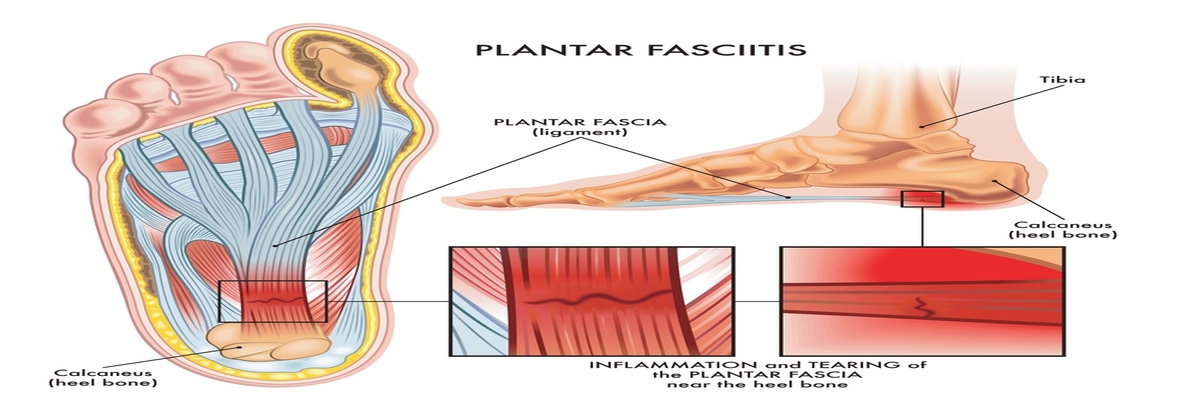Do you experience pain in the morning when you step on the floor? If yes, you may develop plantar fasciitis. It is a common foot condition that occurs when your plantar fascia gets inflamed. This occurs due to overuse or too much stress on the foot. While most plantar fasciitis gets better with home treatment, some need surgical intervention if not treated on time. Learn important things you need to know about plantar fasciitis in this article. Get a consultation with the best Podiatrists in Brooklyn.
What is plantar fasciitis?
The inflammation of the plantar fascia occurs when you have a loss of collagen in the origin of the plantar fascia, the calcaneal tuberosity, and the perifascial structures that surround it.
Normally, footwork relies heavily on plantar fascia support and shock absorption for proper arch function. Despite the diagnosis including the segment “itis,” this condition is notable for its lack of inflammatory cells.
The term “plantar heel pain” best encompasses the wide range of conditions that can cause pain in the plantar heel, in addition to those caused by the plantar fascia itself.
Repetitive strain on the plantar fascia can cause microtears and cause the plantar fascia to become damaged, but it can also be caused by trauma or other factors.
When either the deep or superficial posterior compartments of the ankle joint no longer allow flexion in the dorsal direction, dorsiflexion of the ankle is lost.
The feet are pointing in opposite directions because of excessive dynamic pronation.
The gastrocnemius, soleus, Achilles tendon, and intrinsic muscle tightness are all signs of a problem.
Causes
The plantar fascia, a band of connective tissue, connects your heel bone to your toes. Shock absorption and arch support are also provided by the plantar fascia.
Plantar fasciitis can be made worse by repeatedly tearing and stretching the fascia, but in many cases, the cause is still unknown.
Risk factors
Plantar fasciitis is prevalent between the ages of 40 and 60 years old, according to research.
- There are ways to reduce your risk of getting it again.
- There are some types of exercise that can increase the risk of plantar fasciitis than others.
- There are a number of things, like long-distance running, ballet, and aerobic dancing, that can make plantar fasciitis worse.
- Mechanics of the foot
- Having flat feet, high arches, or even a typical pattern of walking can put stress on your plantar fascia even when standing.
- Your plantar fascia is put under more strain when you’re overweight.
- Jobs that require you to be on your feet all the time. These are the individuals who walk or stand for long periods of time on hard surfaces, such as factory workers and teachers.
- There may be a limp or a preference for toe walking, and the pain is usually worse when the patient is barefoot on hard surfaces or when they are climbing stairs. Many patients may have suddenly increased their activity level prior to the onset of heel pain. There may be tenderness in the anterior medial heel.
Foot and ankle problems are the primary focus of a podiatrist’s practice. The bones, joints, and tissues in your feet and ankles are put under a lot of strain when you run, walk, or simply stand. Uncomfortable, painful, and even dangerous symptoms can be the result of normal wear and tears. If you have any concerns about your feet or ankles, a podiatrist can help.
If you have concerns for your plantar fasciitis, visit our podiatry clinic to get professional medical help that ensures your feet stay healthy and support your feet. Make an appointment with our podiatrist right away if you’re having problems with your feet or ankles due to any of the conditions listed below.
- Corns
- Toe deformities
- Diabetes
- Injury
- Painful or infected toenails
- Poor blood circulation
- Tight or loose shoes.
- Working in cold or wet conditions can all contribute to poor circulation in the feet.
Our podiatrists create personalized treatment plans and provide tips to keep your feet healthy. At Doral Health & Wellness, we have Podiatrists with extensive education and expertise. Our address is 1797 Pitkin Avenue, New York, NY 11212. To make an appointment, please call + 1 718 367 2555 or send an email to info@doralhw.org.






